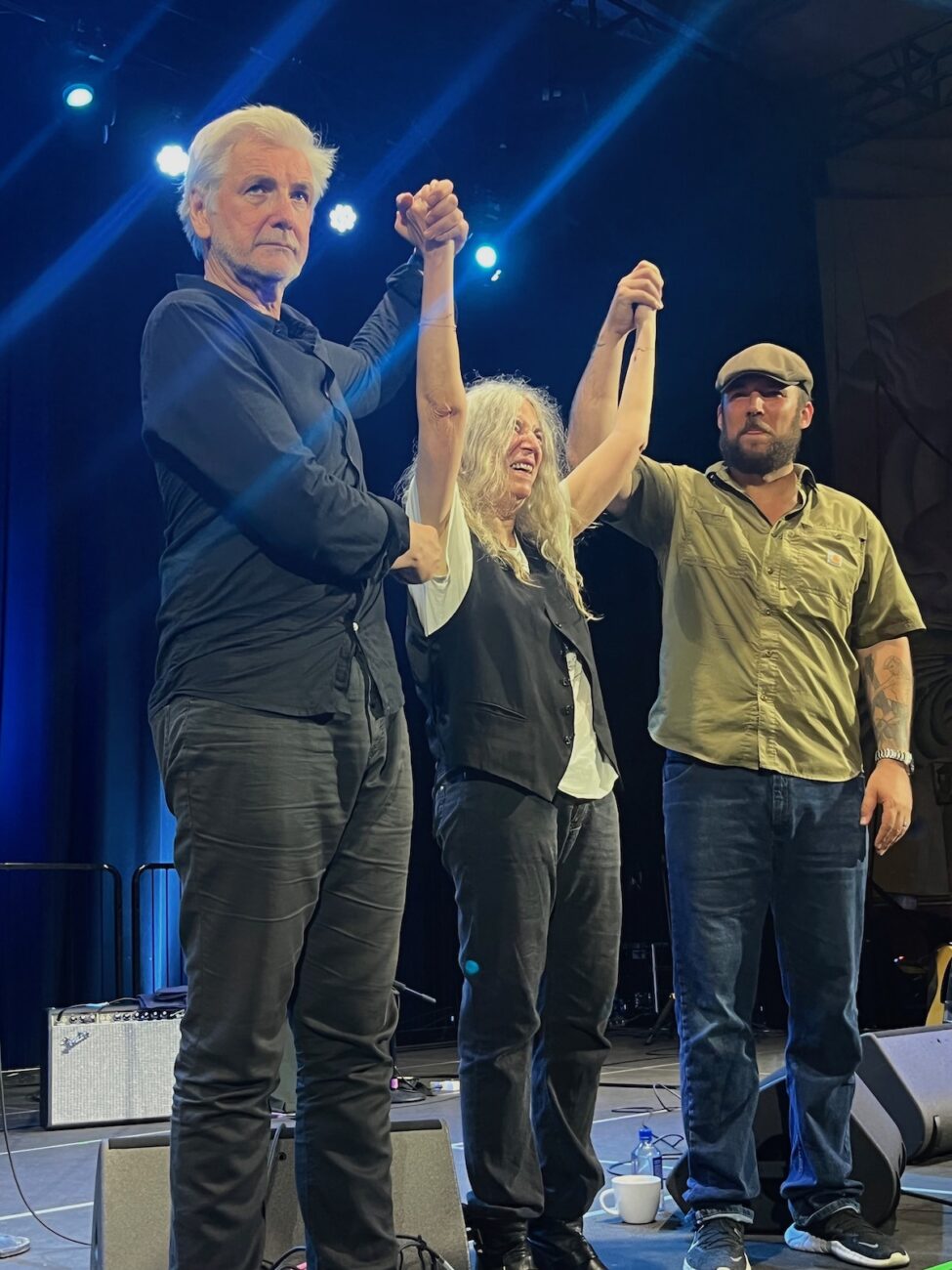Patti Smith Trio pays tribute to rock legends, emulates ’70s punk era at the Fremont Theater
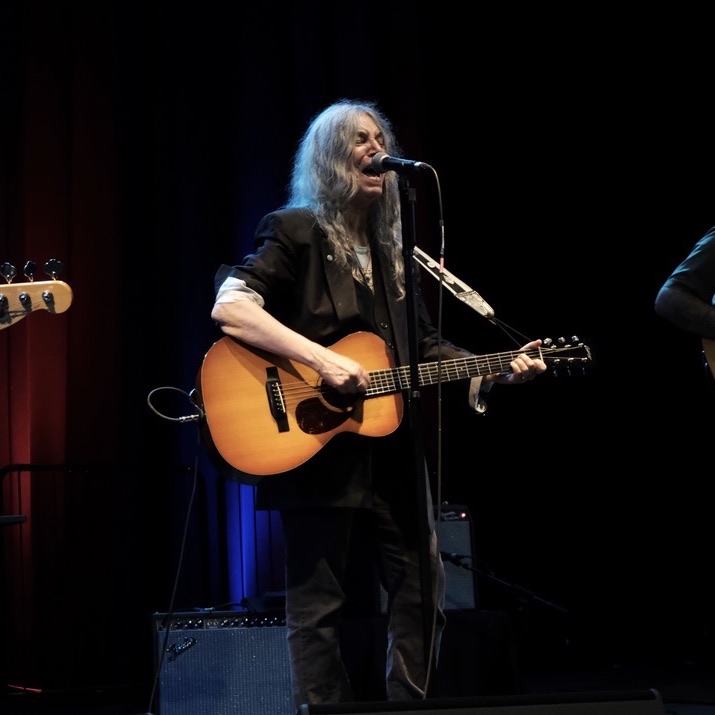
William Burroughs, author and legend of the Beat Generation — the 1950s counter-cultural literary and social movement — once told a young Patti Smith, as she recounted in a 2012 interview at the Louisiana Literature Festival in Denmark, to focus not on obtaining swaths of money or being successful, but rather channeling her focus on doing good work and making a good name for herself, for “eventually, that name will be its own currency.”
Some call her the Godmother of Punk or coin her as a songwriter, painter, poet, performer and all-around cultural icon. For others, she’s just Patti, with the name speaking for itself. But on August 10 at San Luis Obispo’s Fremont Theater, she needed no introduction.
In fact, even before the night gave way to song and The Patti Smith Trio graced the stage, fans filtered in through the concert doors and spent their time waiting for their idol by sharing their mutual excitement with one another. At the barricade, people of the audience, with their backs to the stage, met and connected with the slow-growing crowd around them. For coming together and mingling with others was the night’s first act.
No two were true strangers, as the energy of Smith’s art was felt in all. Soon I befriended a man to my left named Louis, an avid Patti fan who resides in L.A. but grew up seeing Smith in the late ‘70s at CBGB’s, a New York music club, and in Central Park. Having seen Smith live around 10 times, he recounted to me and a few other audience members who joined the conversation a time during one of her concerts he will never forget.
“It was pouring rain and all the speakers were wrapped in plastic,” Louis said as he described the night in Central Park in 1979. “In the middle of the song, she wrapped herself in plastic and peed on stage. It was just so punk rock, everyone went wild.”
Then an avid fan of Patti’s named Yvette pulled out of her bag an old, beat-up copy of “Babel,” Smith’s 1978 book containing a mix of poetry, prose and drawings, which she purchased back in junior high. A small crowd huddled around in awe at what Yvette called her “tormented teenage Bible.”
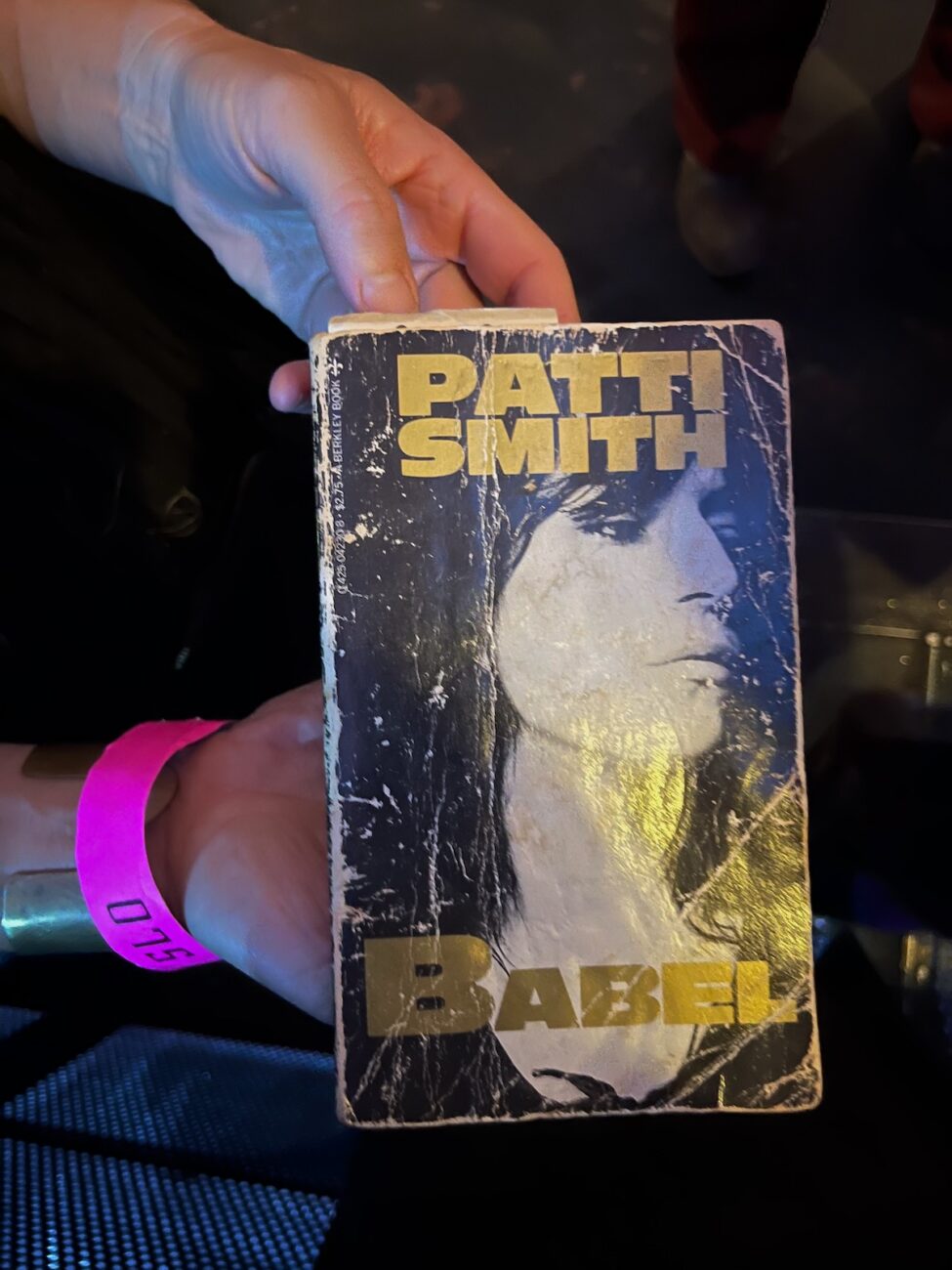
Conversation flowed on through the venue’s multi-generational audience, made up of an eclectic group of people from all walks of life.
“This,” Louis said to us, “is the true tribute to Patti.” For the collaboration and connection through a mutual love of music is the epitome of what Smith stands for.
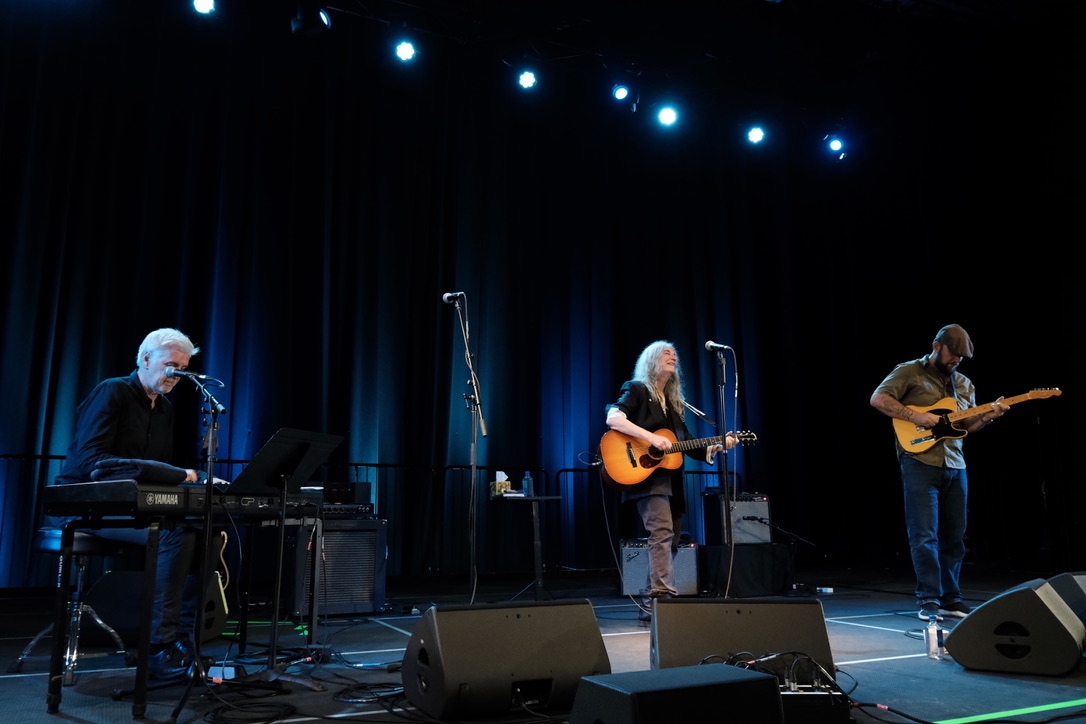
The trio, consisting of Smith accompanied by Tony Shanahan on bass and keyboards and her son, Jackson Smith, on the guitar, offered SLO a night to remember. Smith’s long, untamed silver hair draped down her blazer in loose plaits, and her pants scrunched into her signature black buckled boots as her feet lightly tapped and skipped across the stage, greeting her audience.
She walked up to the microphone and stepped into her role as performer, one she has embraced with great fervor since she first began injecting song and her unabated energy into her written word in New York City’s punk rock scene of the ‘70s. Before Smith spoke, she paused, looking out to the audience with a smile, in ways she has always walked up to a blank page, ready to fill it with her magic.
The first thing Smith did as both the lights and conversation dimmed was apologize for the barricade separating herself and the crowd. “I tried to get it removed, but they wouldn’t,” she said. “I would rip it off with my bare hands if I could.”
But as soon as she began her first song, “Grateful,” which she wrote in 1995 shortly after the passing of Jerry Garcia, singer-songwriter for the Grateful Dead, the barrier that stood between performer and audience instantaneously melted away. For her words came alive and took flight, touching everyone in different ways, while uniting them all under the shared love of music.
The audience only grew wilder as the trio’s performance went on. Playing the 1978 song “Ghost Dance” from Smith’s album “Easter,” the power of Smith’s voice as she sang the lyrics, “We shall live again” reverberated around the theater.
However, it wasn’t until she stepped to the edge of the stage with her hands raised high, seeking the voices of her audience, that she looked truly in her element. As the song came to a close, it was not Smith singing to her fans, but rather a joint effort and collaboration of people, connecting in a language only music could offer.
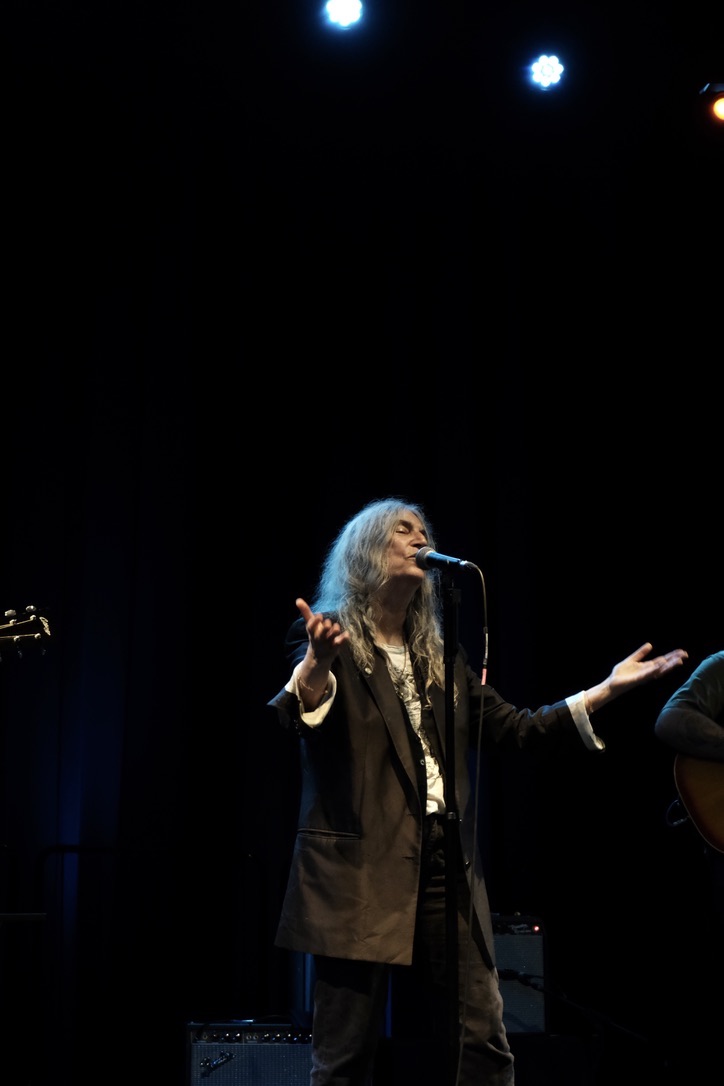
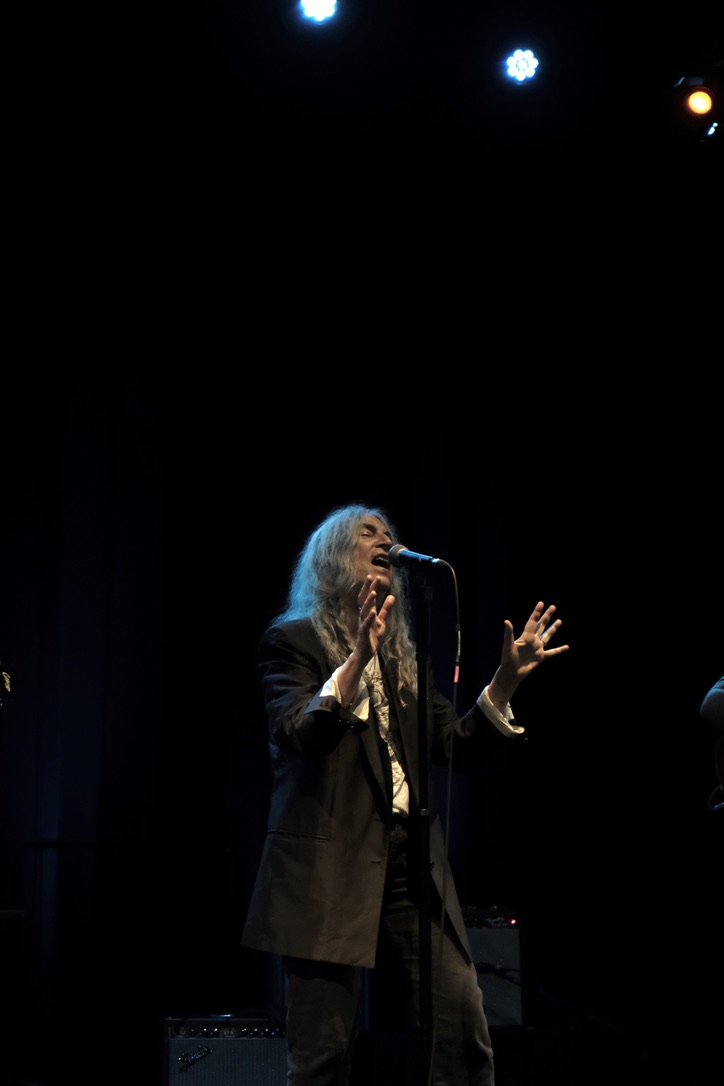
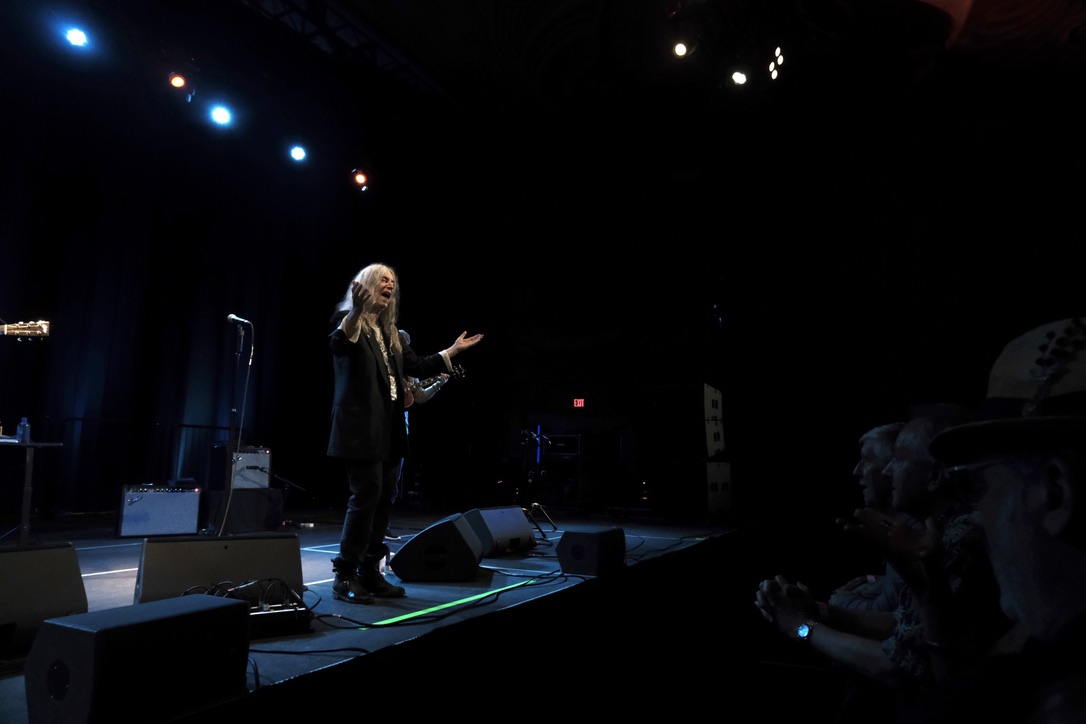
Riding on this flow of energy, trio member Shanahan took to center stage with Jackson, singing a cover of “It Makes No Difference” by The Band, showing reverence towards guitarist and band member Robbie Robertson who passed away the night before the show, on August 9.
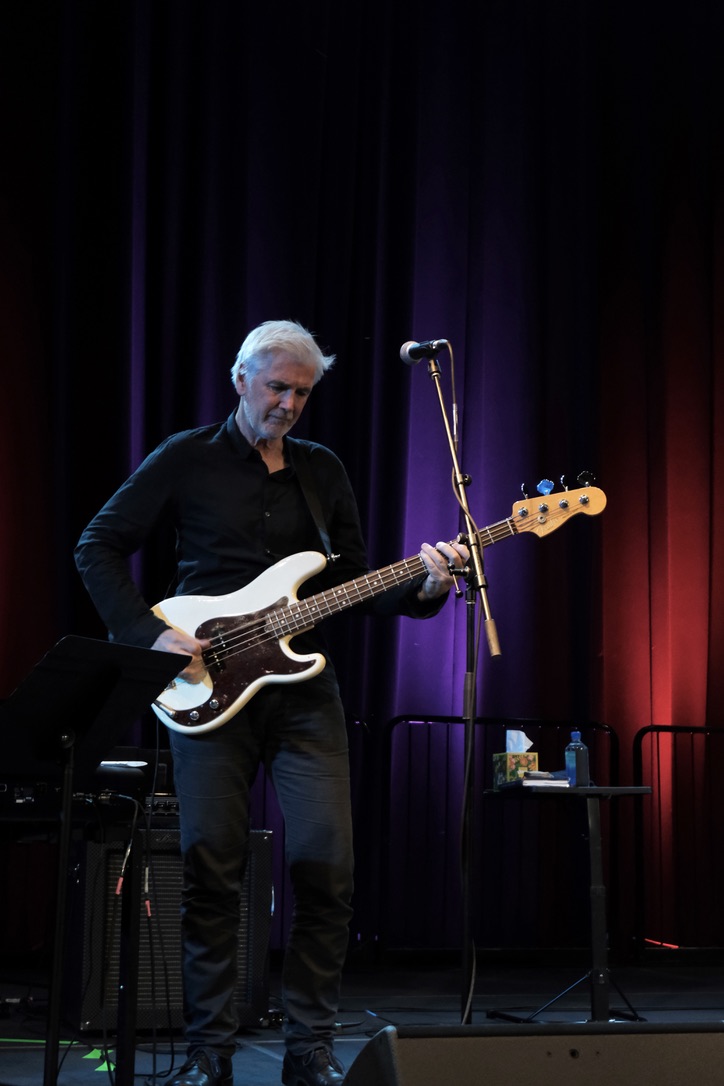
Remembering artist Brice Marden, an old friend of Smith’s who also passed away on August 9, she then sang her song “Beneath the Southern Cross.” The guitar melodies grew louder and stronger with every verse, and as the song came to a close, Smith said, “Farwell Brice” as she kissed her instrument.
In a similar fashion, Smith paid tribute to Tom Verlaine, who passed away in early January of this year. He was a longtime friend and ex-lover who collaborated with and inspired her throughout her career. Singing a cover of Verlaine’s rock band Television’s song “Guiding Light,” Smith’s eyes were closed as her delicate hands passed from her heart to the sky, twirling her fingers around as if feeling the energy of the song and the power of Verlaine’s influence.
Grappling with loss and death has been an abundant struggle in Smith’s life, with lover and partner Robert Mapplethorpe dying of AIDS in 1989, as well as her later husband, Fred Sonic Smith, and brother, Todd Smith, both passing away in 1994.
But by turning to writing and performing for solace, Smith reveals that beautiful works of art can come from horrible tragedy and loss.
“We keep them alive,” Smith said before dedicating another song to a great musician. “We keep them alive in our memory, in our actions, in our cells. So this is for them, but it is also for life.”
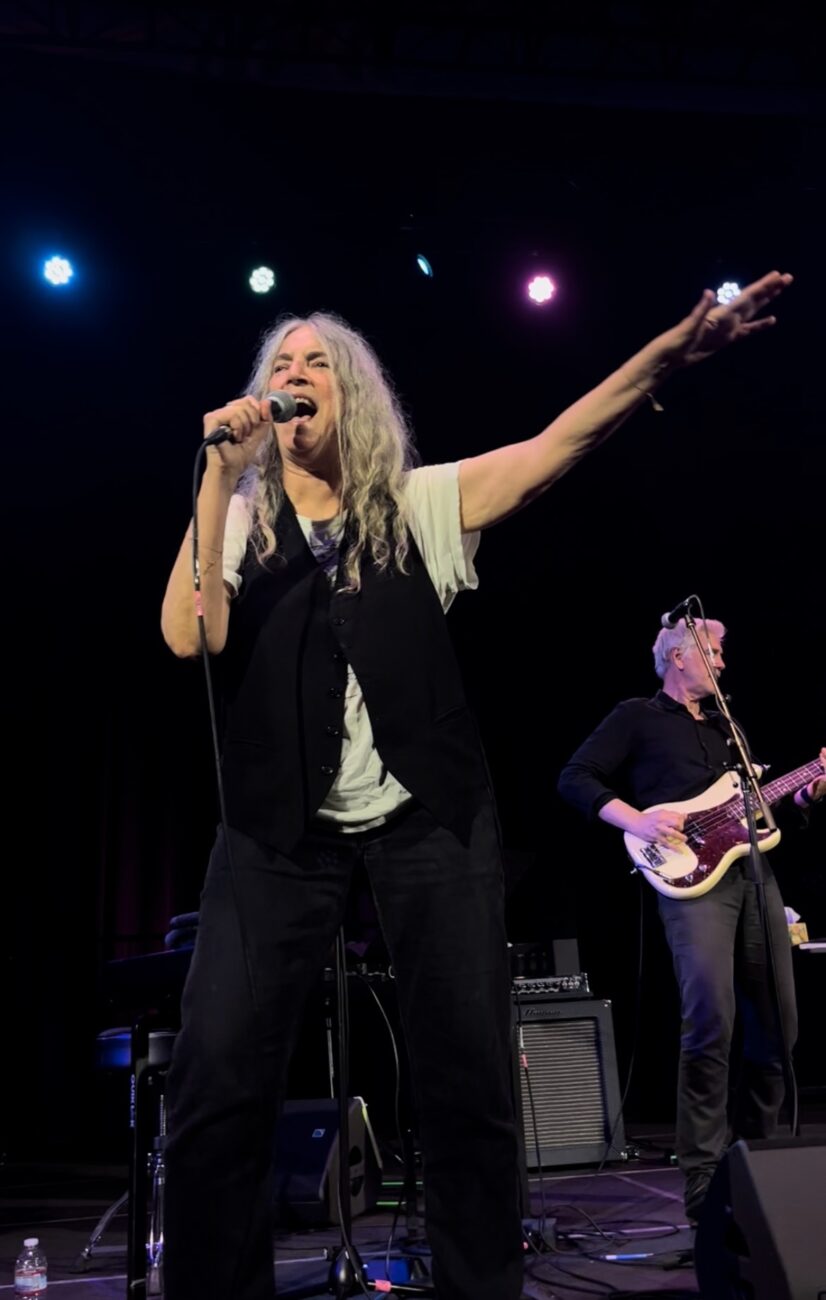
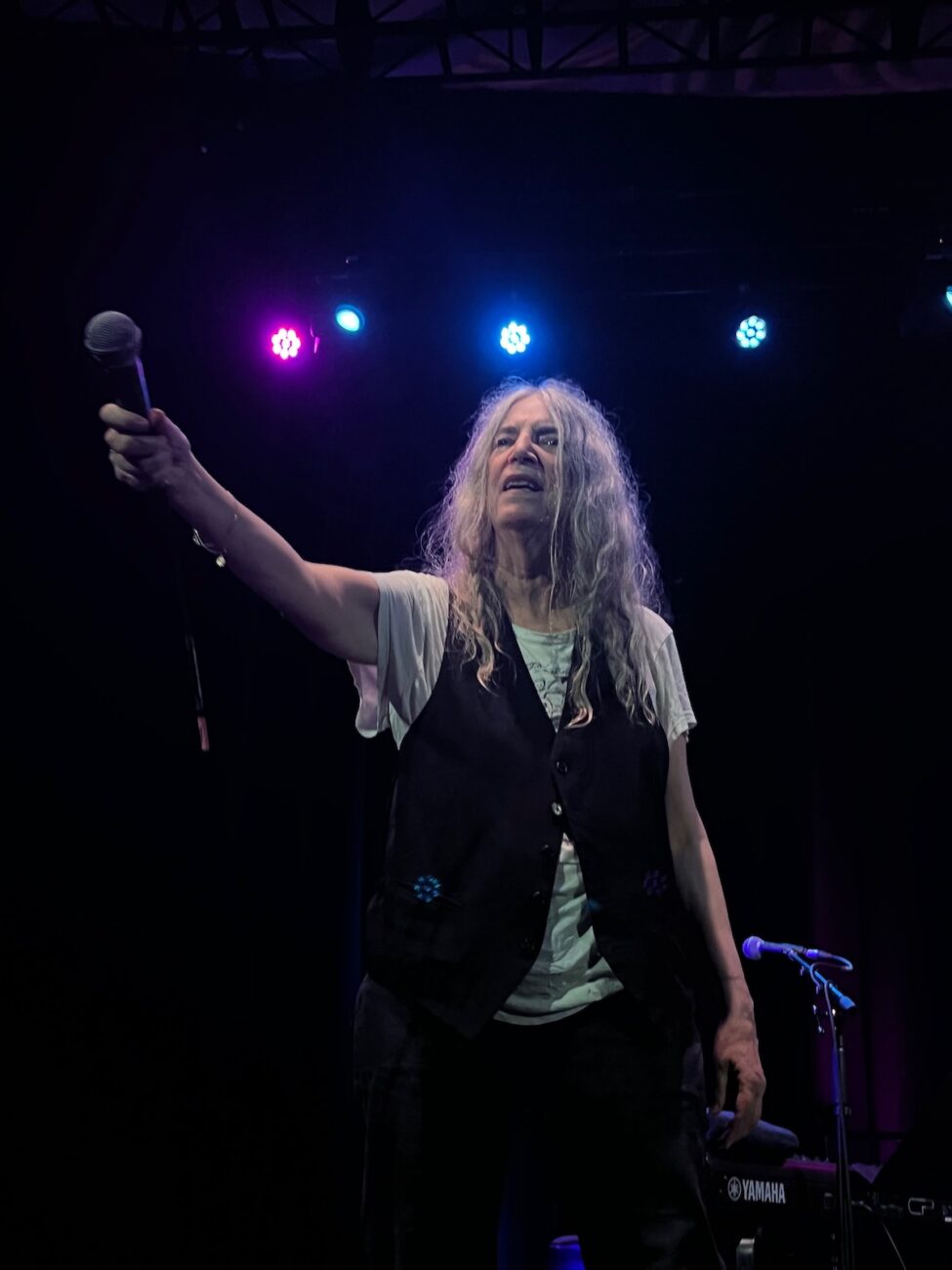
Along with the trio dedicating much of the night to playing songs in recognition of bright and influential people who have passed away, Smith also used her songs and powerful, unrelenting voice to speak about social injustices and wars abroad.
Belting lyrics from her songs like “My Blakean Year” and “Peaceable Kingdom” with great passion, she drew on recent events, like Biden’s request to Congress to send an additional $24 billion for arms to Ukraine.
“It would be nice if they invested $24 billion for the people, for peace,” Smith said.
Having moved to New York City in 1967 and immersed herself in the booming punk rock and beat poetry scene, Smith quickly became an icon of the times, using her music as a way to rebel against the conventional and start conversations others were reluctant to. Whether it was calling out the government or shining light on injustices and human rights issues, rock n’ roll was Smith’s outlet.
Just look at her songs like “Radio Baghdad,” from her album “Trampin’,” about the 2003 invasion of Iraq or “Qana,” written in protest of the Lebanon bombings in 2006. Hit song “People Have the Power” calls society to action, reminding them of the power of collective strength and their ability for change.
Soon, Smith put down her guitar and put on her reading glasses. The other trio members stood off to the side and the audience grew quiet. Opening up her 2010 memoir and winner of the National Book Award, “Just Kids” — which details the love story between her and Mapplethorpe and their experience as poor but enthusiastic up-and-coming artists in New York — Smith read, with great pride and reverence, a passage from it.
The words came alive as she spoke them. One could see Smith, now 76, being transported back to her early 20s, living at the infamous Chelsea Hotel in Manhattan surrounded by leading figures of that era, like Andy Warhol, Allen Ginsberg and Bob Dylan — she and Mapplethorpe young and oozing with creativity.
But with art being this powerful, unfaltering life force of Smith’s, none of that deep-rooted passion for art felt at 20 has dimmed. Even 50 years later, her never-ending creative flow is still alive and burning bright in her.
As the trio’s fruitful setlist came to a close, with Smith singing covers of Bob Dylan’s “All Along the Watchtower” and “One Too Many Mornings,” as well as the hit songs “Gloria” and “Because the Night,” co-written with Bruce Springsteen, the energy was bouncing around the room and floating in between groups of friends, family and couples swaying in the audience.
In the upcoming months, Smith will work her way North, playing shows in Monterey, San Francisco, Portland and Seattle, as well as moving eastward to New York, Massachusetts and Washington D.C. She will finish her tour in late October after performing in various cities in Italy and Germany.
With only three instruments — the electric guitar, bass and keys — accompanying Smith’s voice, the effect of The Patti Smith Trio’s music and the raw power and energy of the crowd revealed the true talent of these musicians.
Though the ecstatic young Patti Smith spitting beat poetry in the bustling N.Y. scene of the ‘70s has passed, and those specific experiences are saved only for those who experienced them, what the audience experienced on August 10 was something of the same magic, and one that entered each and every person, and left with them at the theater doors.
